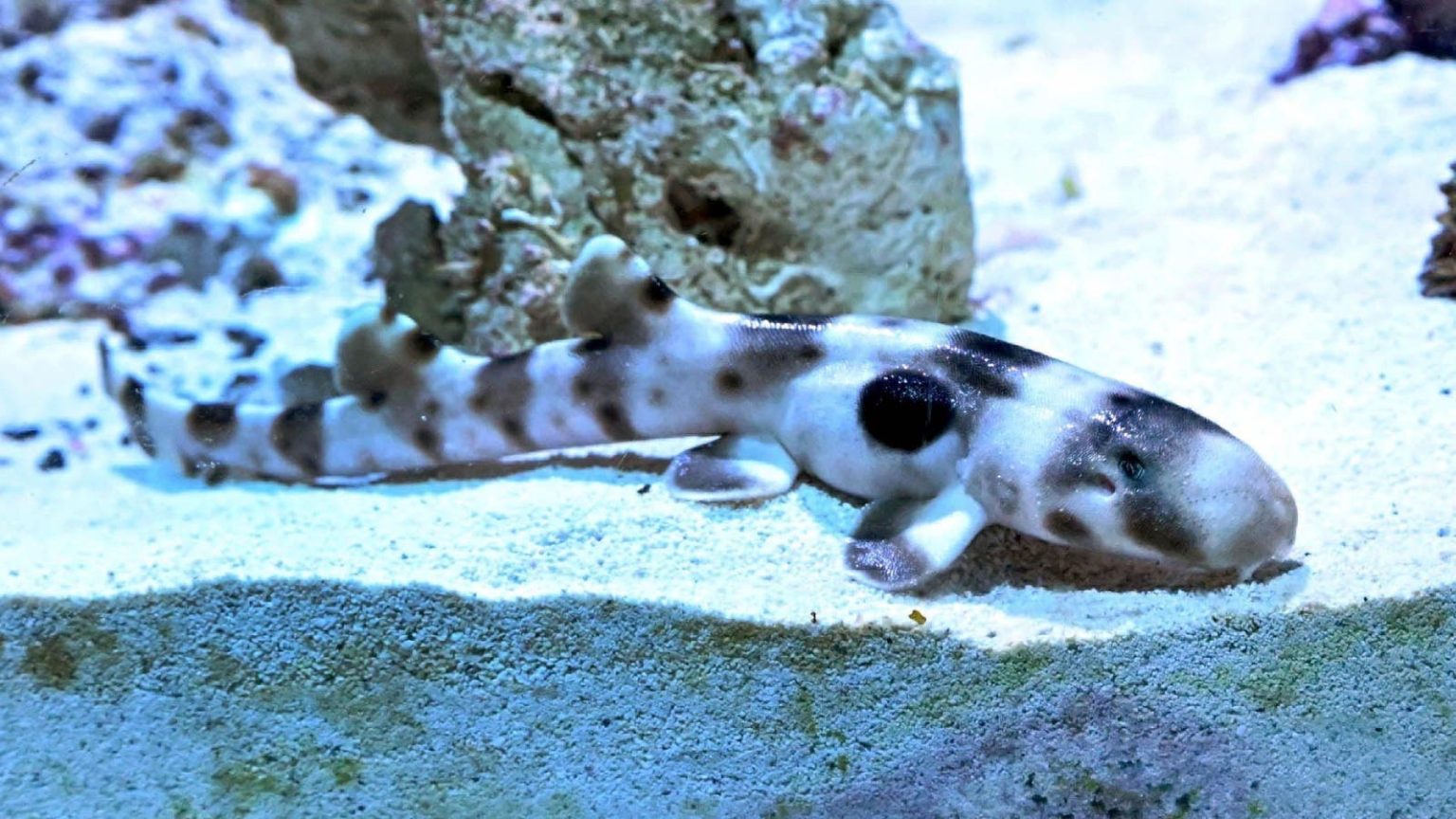A shark having babies? Not always newsworthy.
But a shark having babies after the mother shark in question had not been in the company of a male shark since her arrival at the facility back in 2019? More newsworthy.
The remarkable news was officially revealed on a recent Wednesday when the tiny epaulette shark pup emerged into the world on August 23. This astonishing event marks the second known occurrence of a female epaulette shark reproducing asexually in a U.S. zoo. Epaulette sharks are a unique species of carpet sharks native to the Indo-Pacific region, particularly around Australia and Papua New Guinea. These small sharks typically grow to around 30 to 40 inches in length and are known for their slender bodies, rounded snouts, and distinctive dark spots with lighter edges, resembling ‘epaulettes’ on their sides, which give them their name. One of their most intriguing features is their ability to “walk” along the seafloor using their pectoral and pelvic fins, allowing them to navigate shallow reef environments and access prey in small crevices. Epaulette sharks are primarily nocturnal hunters, feeding on small invertebrates, crustaceans, and small fish. They use their keen sense of smell to locate prey and are oviparous, with females laying egg cases in safe locations within the reef. Epaulette sharks are popular among marine enthusiasts and are often featured in public aquariums due to their intriguing behavior and manageable size.
While parthenogenesis is naturally observed in some invertebrates, it is a relatively rare phenomenon among sharks. The only other documented instances of epaulette sharks being born through parthenogenesis occurred at the New England Aquarium, and intriguingly, the female sharks at Brookfield Zoo originated from there. Recently, a zebra shark at Shedd Aquarium reproduced on her own in 2022. This “virgin birth” is attributed to a biological process known as parthenogenesis, where an embryo develops without being fertilized by male genetic material. This phenomenon is best documented in zoo environments, and researchers have uncovered evidence suggesting that it could be an inherited trait: it appears that females who undergo parthenogenesis are more inclined to have daughters who possess the capability to replicate the same process.
What’s truly captivating is that this female epaulette shark was just three years old at the time of this remarkable occurrence, whereas the species typically attains sexual maturity around the age of seven. According to a press release from the zoo, the female shark began laying eggs each month starting last year, with most of the eggs being infertile. However, one lucky egg proved to be fertile, and five months later, it hatched. Today, the pup is a two-month-old, measuring approximately five to six inches in length, with the potential to grow up to three feet.
“We are happy to report that our epaulette pup has been eating well on her diet of finely chopped capelin (fish), minced squid tentacles, and other finely chopped seafood. Our colleagues at New England Aquarium have been a great resource as shark pups produced parthenogenetically can be very delicate,” said Mike Masellis, a lead animal care specialist at Brookfield Zoo. “We are looking forward to guests being able to see the pup.”
Read the full article here





